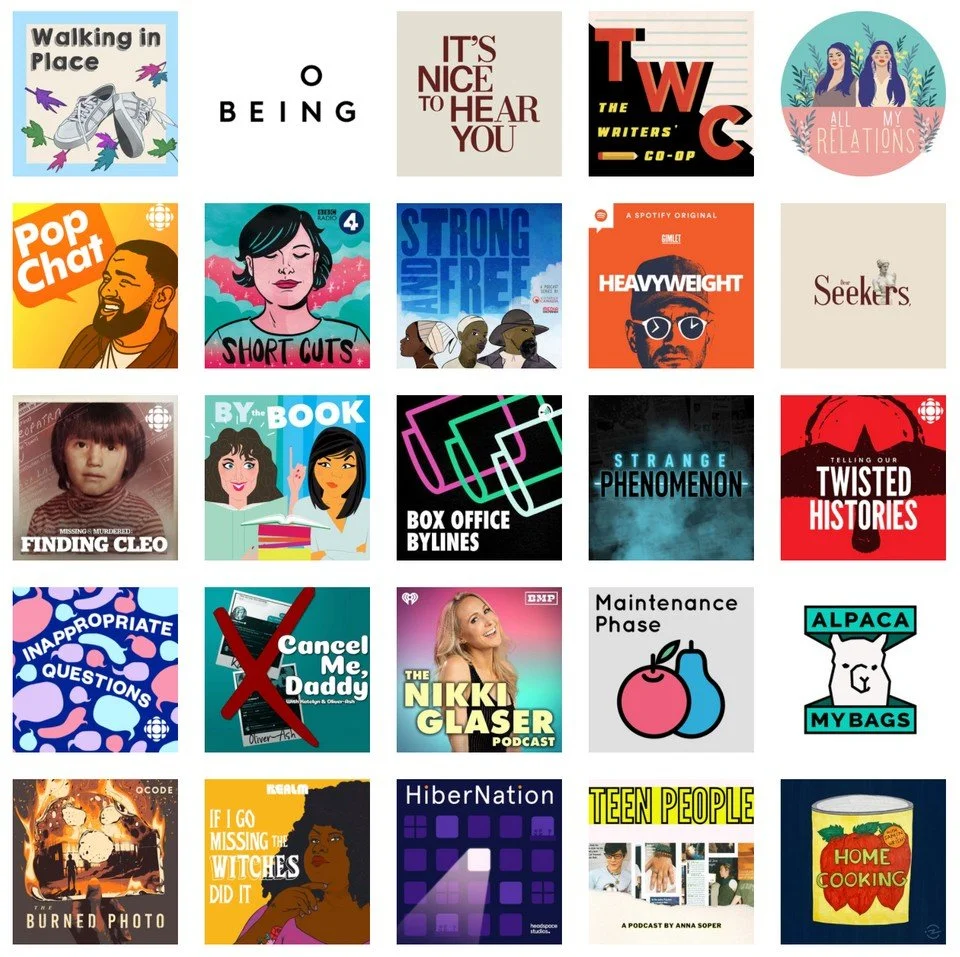Has COVID-19 changed Canadian podcast listening?
Source: iStock.com/OllyKava
Before the pandemic, Dustin Krysztofiak was the biggest podcast listener I knew.
He works as a digital content creator and UX designer, and on average, he used to listen five to six hours of podcasts per day. He listened while getting ready for work, commuting, and even once he got to his office.
But once he started working from home, his listening disappeared almost entirely. To Krysztofiak, podcasts are so associated with pre-pandemic life that it feels weird incorporating them now, perhaps because they remind him of how much things have changed.
Podcasts are a mobile and movement-friendly medium. Listening is often tied to activities outside of the home, like commuting, working out, and grocery shopping.
So when lockdown orders were put in place in mid-March, and Podnews reported that podcast downloads were decreasing by 20%, some wondered if this would put a sizable dent in podcast growth. But after a few weeks, podcast download numbers stabilized.
In October, Variety reported that U.S. listenership had increased 189% since the start of the pandemic, with 52% of podcast fans consuming more than pre-pandemic times (WestwoodOne found that it was 41%).
What happened between March and October? Did people establish new podcast routines? Has the pandemic changed how and why we listen to podcasts?
And why do I care about this? Podcasts have been a big part of my life over the past few years—my master’s thesis was a podcast about how and why we engage with the medium. Pre-pandemic, I listened at home, so my listening routines didn’t change until October when I graduated. Once my school routines were gone, my listening faltered.
I’ve yet to find a new listening routine, but that hasn’t been the case for others.
I spoke with some Canadian students and young professionals to explore how their listenership has been shaped by the pandemic. Folks I spoke to had various living arrangements: cohabiting with partners, parents, or roommates—others live alone. They work for the government, private, and non-profit sectors, mostly from home (or are currently unemployed).
It’s not surprising that as daily life has changed, podcast listening routines have shifted as well.
A few people struggled to adapt their routines
It's a small number, but Variety reported that 13% of people are listening to podcasts less than they were pre-pandemic (WestwoodOne found that it was 7%).
For some, their pre-pandemic listening routines just couldn’t be translated to their homelife. Instead, listening had to become more intentional—which can make it “feel like work” when trying to keep up with regular shows.
Krysztofiak purposefully goes on a picturesque ravine walk to listen to his favourite podcast. When commuting from Toronto to St. Catharines, web designer Bennett Steinberg coordinates virtual synchronized listens with his partner. More intentional listening habits often translates to more meaningful engagement.
People have replaced podcasts with other forms of companionship
People joke about how listening to podcasts feels like hanging out with friends—but it’s TRUE. Podcasts can act as a form of companionship, even if it’s para-social.
Source: @asapsmoke01 on Twitter / Vocal Fry Illustration
Out in the world, listening to your favourite podcasts can create a comfortable bubble—an “aural cocoon” as academics Michael Bull and Sarah Florini call it. Podcasts can create a sense of home, even when you’re not at home. But now that people are actually at home with corporeal companions—roommates, partners, and family members—they might rely less on podcast companionship and the “aural cocoon.”
There’s also the logistical challenge of living in close quarters. If the people you live with don’t share your listening preferences (and it’s hard to listen alone), bye bye, podcasts.
Now, podcasts have to compete with every other type of media
While podcasts (and music) have few rivals in the outside world, at home, podcasts compete with TV, film, books, video games, video streaming platforms and radio—and some people prefer those alternatives right now.
According to academic Robert MacDougall, podcasting can act as a “narrative track” to your life, much like music. Your visual sense is free to do other things while you’re listening, like art, exercise, chores, or daydreaming. Whereas I might struggle to get back to my life after watching a show on Netflix—after finishing a podcast episode, I don’t have trouble going back to my own world, because I never really left.
I love that podcasts can be interwoven with your life, but many people aren’t exactly reveling in their current reality—whether that’s due to their living situation, lack of human contact, unemployment, or you know, the general state of the world. So for some, podcasts don’t provide enough of an escape. They prefer a medium that engages more of their senses, like TV or video games, to transport them away for a little while longer.
Yet, many people are listening more
As is reflected in growing download numbers, large numbers of people have started listening to podcasts more often than they were pre-pandemic. Podcasts are now playing a more important role in the lives of some of the people I interviewed.
Especially for those who live alone or feel lonely, podcasts can act as an antidote to isolation—providing comfort, companionship, and familiarity. Podcast hosts are becoming even more crucial—whether it’s because people are using podcasts to feel like they’re hanging with friends, or because they’re just excited for any semblance of human contact, without Zoom fatigue.
Most of the people I spoke to gravitated toward podcasts that were “lighter” and made them feel better, particularly in times of stress; these included comedy podcasts (shows in the McElroy Family universe, Billbuds) and fun chatcasts (Pop Chat, You’re Wrong About, Chatty Broads).
Podcast listening has also been a useful distraction, helped to quiet people’s intrusive thoughts, and made their home environments feel more comfortable. Podcasts have even helped to counter anxious feelings associated with going outside or being on transit. Risa Elo-Shepherd says podcasts were useful during her commute into Toronto when she worked as an essential worker earlier this year—especially when people were lax with mask usage and physical distancing protocols.
Three of the people I spoke with, all of whom are now listening more than they were pre-pandemic, primarily listen while working from home. “Podcasters’ voices help me concentrate a little bit better on my work,” says Mamta Manhas, a government worker based in Ottawa.
Source: @MLSist on Twitter / Vocal Fry Illustration
Before anyone says, “Meh, is multitasking even possible?”—I think listening to podcasts while working from home can help to recreate a sense of an office environment. Instead of having your co-workers talking and bustling around you, creating a supportive, productive and lively workspace (or a toxic one for that matter... yikes), you have podcast hosts. And for some people, that’s really helpful and comforting!
Podcast listening routines have also become important touchstones in how people navigate their everyday lives. Kaitlyn Simpson, an MI student and government worker in Toronto, says her news and technology podcast listening routine provides structure and helps her gauge how her day is going. “I think that listening to podcasts is almost a way for me to be productive,” she says. “If I’ve gone through my five podcasts in the morning, and now I know all the main international stories, I feel good.”
Pre-pandemic, Elo-Shepherd didn’t know what day of the week certain podcasts came out. But now, that schedule is important to her. “It’s nice to have more things that remind me that time is passing.”
“It’s nice to have more things that remind me that time is passing.”
- Risa Elo-Shepherd
Listening to podcasts is a consistent, low stakes way to engage with the world and learn new things. “At a time where I rarely leave my neighbourhood, it’s just nice to have something be new,” says Elo-Shepherd. Simpson says podcasts used to help her feel comfortable while navigating the outside world. Now, they’re her way to “reach the outside world.”
Podcasts are also an increasingly useful tool for social interaction. Elo-Shepherd noted how they can simulate AND stimulate conversations among friends and family. This is especially important now, when you might be struggling to find new (not draining or mundane) things to talk about. And at a time when we’re relying on screens to connect us, podcasts—or “the internet freed from pixels” in the words of Jonah Weiner—can feel like a welcome alternative.
A podcaster’s voice might be the first you hear in the morning, and the last voice you hear at night. Podcasts can act as your coworker, entertainer, roommate, companion, and your way to engage with the world.
Whether listening early in the morning or before bed; while cooking or cleaning; walking or working; socializing or taking the time to sit and listen—incorporating podcasts into everyday life can help people feel less aimless and lonely during the pandemic.
But don’t let anyone tell you that you have to “maximize” or “optimize” your listening! I know my listening routines have come, gone, and morphed as my life has changed. Ultimately, however you choose to listen is the right way.
Thank you to Kaitlyn Simpson, Risa Elo-Shepherd, Mamta Manhas, Dustin Krysztofiak, Bennett Steinberg, Rebecca Roberts, Tristian Lee, Lauren Dwyer, and Annie MacKillican for talking with me about their listening habits!
My research and theories about podcasting are in part informed by my Master of Arts thesis project, My Master’s Thesis, but it’s a podcast about podcasts, as a part of Ryerson and York Universities’ joint Communication and Culture program.







